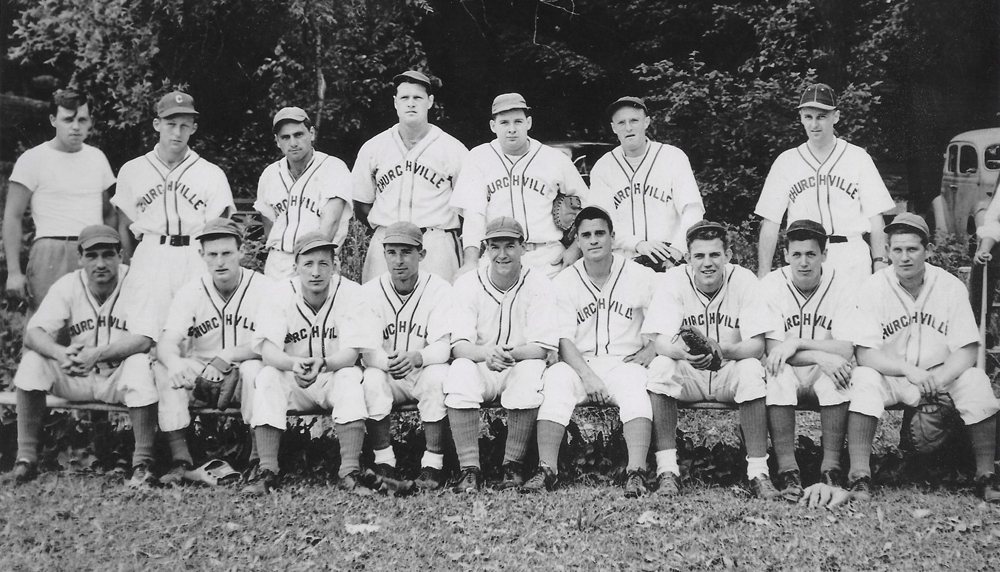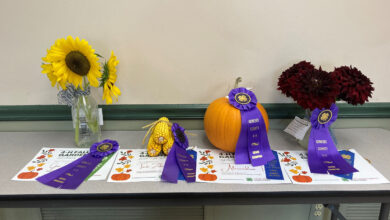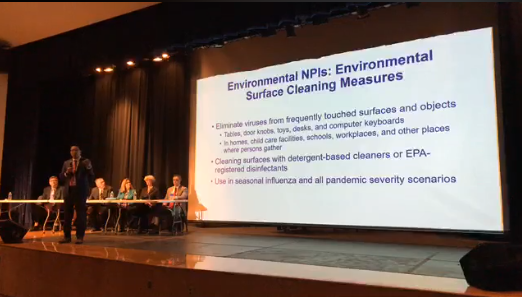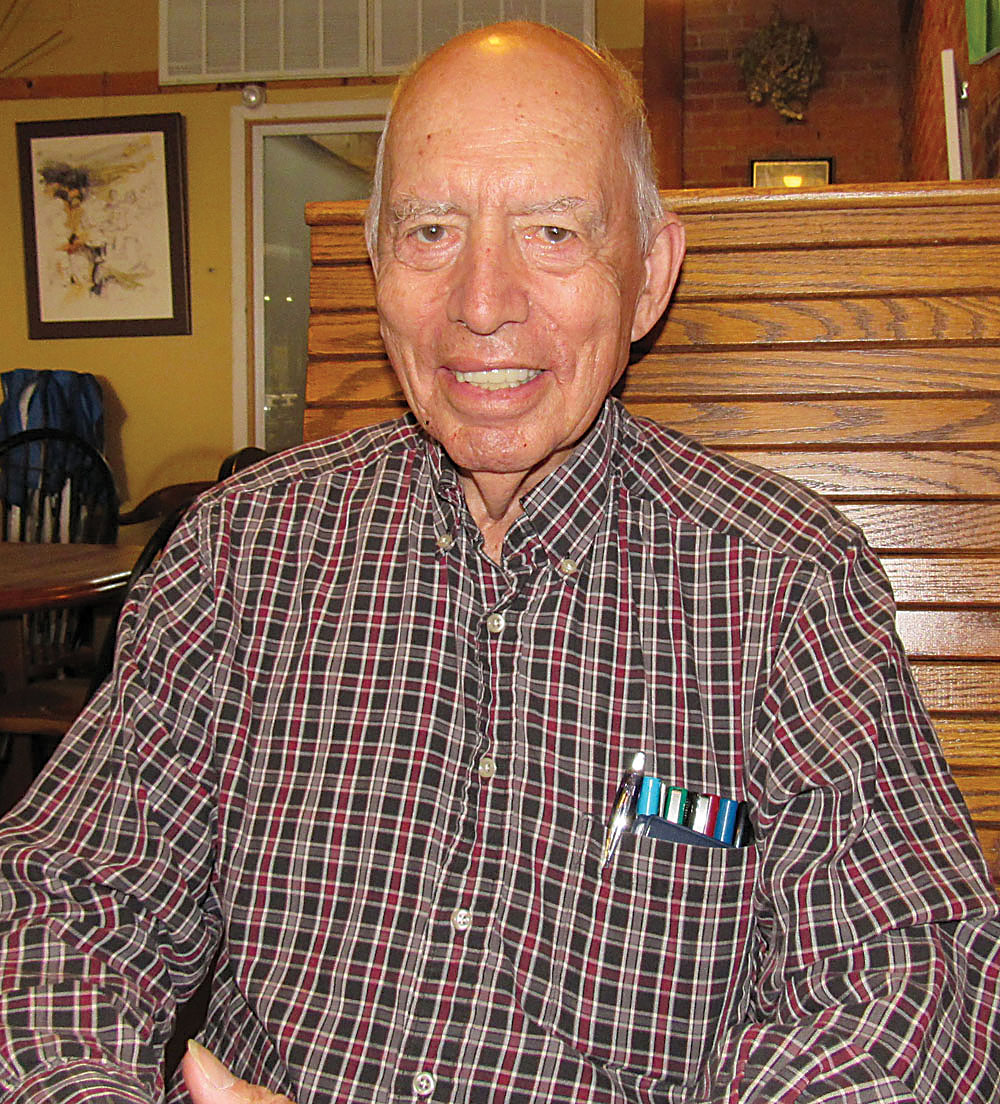Local 4-H Clubs
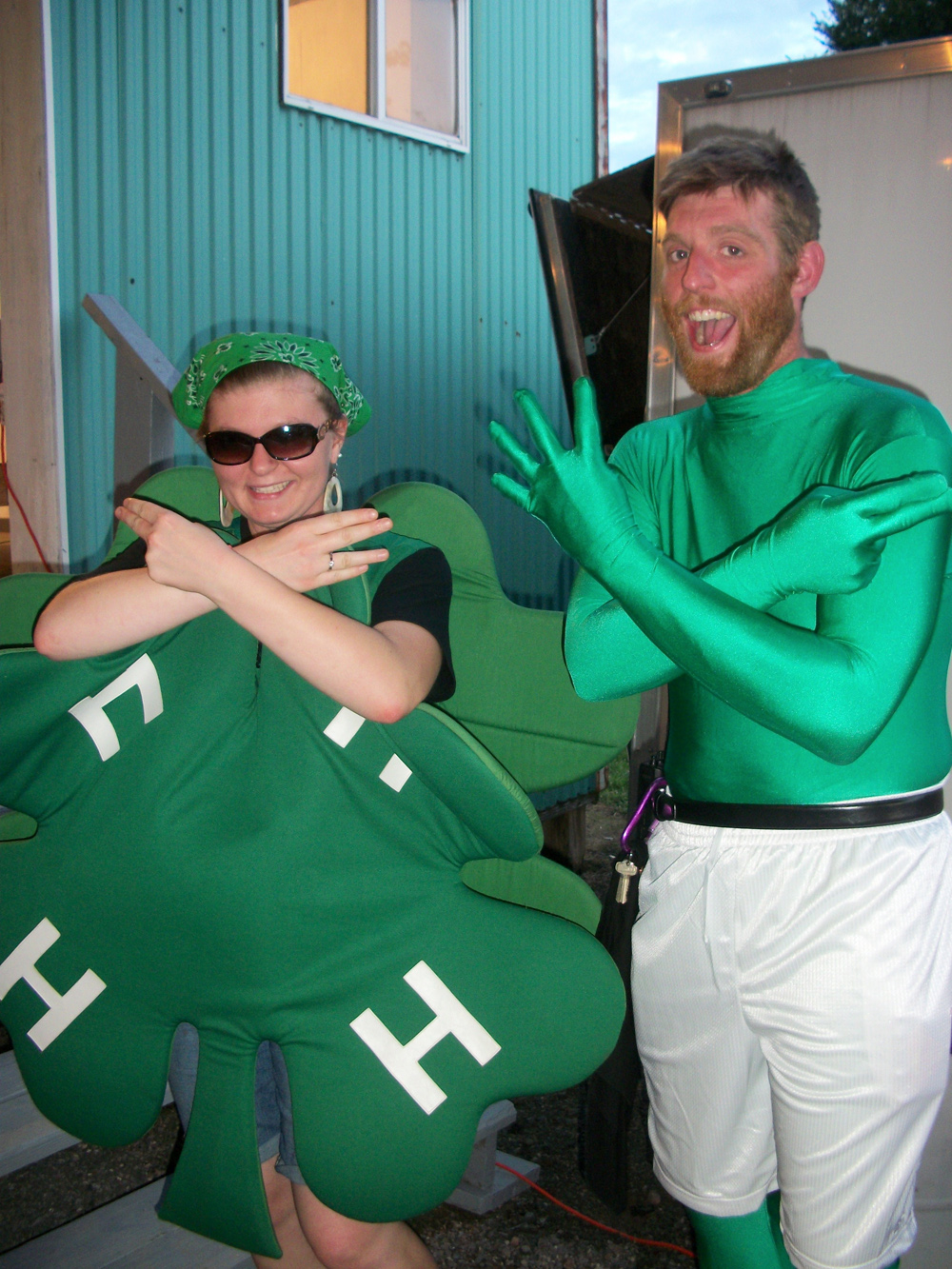
You may be surprised to learn that 4-H (the Hs stand for head, heart, hands and health) is the nation’s largest youth development organization. More than six million youths participate in urban neighborhoods, suburban school yards and rural farming communities.
Local 4-H youth development educators say 4-H offers a range of programs from traditional – things like baking, sewing, livestock and horticulture – to more cutting-edge programs – such as robotics, conservation, rocketry, shooting sports, dogs and community service.
“4-H membership is like a buffet and members can take in as much or as little of this range as they like,” says Orleans County 4-H youth development educator Robert Batt. “We find some members focus on one project area while other members will invest themselves across the board into many different projects. Some of our members participate in clubs that meet on regular nights and complete activities together as a group. Other 4-Hers are independent members who do not participate in a club but do participate in county-wide programming.”
Tara Defendorf-Kuba is a 4-H youth development educator in Monroe County.She says 4-H is more than exhibiting home arts and animal projects at the fair.
“It’s about life skills,” she says. For example, before the fair begins, 4-Hers bring their projects for a one-on-one evaluation with a judge.
“It’s nerve-wracking,” Defendorf-Kuba says, “… but the kids grow through the process. Their self-esteem sky rockets.”
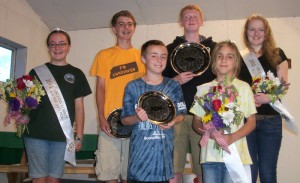
She says 4-H provides youth with opportunities not available to them in school – such as animal projects. “It’s about a process of learning and gaining confidence,” she says. Things they learn in 4-H about subjects like biology and chemistry can be taken back to school and applied in the classroom, she adds.
4-H also provides interaction between age-groups. “We have a mix of ages from 5-19,” Defendorf-Kuba says. “The older kids help and teach the younger ones and the younger ones really, really look up to them.”
She says many people who have grown-up in 4-H continue to be involved in the program as leaders and volunteers. “It’s really neat to see,” Defendorf-Kuba says.
Monroe County even has an urban program for youth at risk. Citizen-U helps youth prepare for college and careers, Defendorf-Kuba says. “We are working to meet the needs of the demographics of the community.”
4-H Orleans County youth educator Robert Batt says all of the programming offered by 4-H is intended to offer youth the opportunity to learn by doing. Each activity focuses on youth developing life skills and a better understanding of community.
“The 4-H public presentations program is an annual event in which youth do one of several types of presentations in front of an audience of peers and adults and are evaluated,” Batt says. “Youth can then go on to compete in the public presentation program at the district and state level. We also have a series of award trips that are offered each year to youth who complete an application which helps them develop skills for later applying for scholarships, career opportunities and college. Our award trips give 4-Hers a chance to travel outside the county and meet other 4-H youth from across the state. Some of the trips include camps, a trip to Albany and Cornell Career Explorations. There are other county events as well, but for most of the youth, the county fair stands out as a favorite. The fair was originally started as an opportunity for youth to showcase their projects from throughout the year and still remains that today and includes the Orleans County 4-H Market Auction.”
According to an in-depth longitudinal study conducted by the Institute for Applied Research in Youth Development, Tufts University, 4-Hers are:
•Four times more likely to make contributions to their communities (Grades 7-12)
•Two times more likely to be civically active (Grades 8-12)
•Two times more likely to make healthier choices (Grade 7)
•Two times more likely to participate in computer and technology programs outside of school (Grades 10-12)
•Three times more likely to be involved with science programs outside of school (Girls in 4-H, Grades 10 and 12)
One common misconception about 4-H, is that members need to live on a farm or own livestock to participate, but Batt says you don’t have to own a goat to take part in animal science programs.
“There are livestock opportunities including dogs, cats and rabbits that all take less space and allow families that don’t live on a farm to participate in 4-H,” Batt says. “We also have several leaders and families in 4-H who will work in partnership with youth to allow them to exhibit animals as non-ownership projects. We even have several youth who own one large animal, but want to try out another area and pair up with a friend to show some of their animals.”
Participation in 4-H helps youth to define their interests and talents and prepares them for their future career.
Many local 4-Hers do go into careers in agriculture, Batt says. “I can think of a crop specialist, a horticulture educator, a handful of horse trainers, a couple of farmers and at least one professional dog showman. The list only grows from there when we look at 4-Hers who really took advantage of the leadership roles in clubs and committees and took on responsibility for the running of events. The youth who participate at that level over the past ten or 20 years include military officers, teachers, Washington lobbyists, IT specialists, who all comment on how the leadership roles they had in the 4-H program directly impacted their success in their career field. While I know many 4-Hers go on to stay active in agriculture, we also know that 4-H experience is a valuable asset in many careers. The experience of working in partnerships and as part of a team is invaluable.”
Batt himself grew up in 4-H and keeps in touch with other 4-H alumni.
“I can list off all the awesome things these people are doing with their lives now and usually connect their careers, contributions to the community, and successes back to the program they were involved in during their time in 4-H. Becoming part of the 4-H family is an experience that truly helps shape youth into members of a community who care deeply about those around them and are never afraid to step up and volunteer when needed.”
Twenty year old Nichole Sands grew up in Orleans County 4-H. She is entering her junior year at The College at Brockport and majors in business administration with a concentration in pre-law and minors in philosophy and economics. She hopes to become a lawyer.
Nichole says she completed sewing projects each year as well as public presentations and a cooking series while she was in 4-H. She joined when she was eight years old, following along in the footsteps of two older sisters.
“I participated in the ‘Grown in New York’ competition every year,” she says.
“On several occasions, I was sent to state fair for both ‘Grown in New York’ and public presentations. In 2009, my public presentation about 4-H Camp Wyomoco awarded me with the bronze medal (third place) at the state level in illustrated talk.”
All of the skills she learned through 4-H have served her well, Nichole says. “The ability to sew has given me the freedom to both make and alter my own clothes, and avoid buying too many store-bought clothes. Cooking is obviously helpful because I love food!”
Public speaking has been helpful as well, she says, from presenting in classes both in high school and college, “…. to being interviewed for scholarships, to having participated in the American Legion Oratorical Contest – which later led me to getting an internship with the Orleans County District Attorney, which I have had this summer.”
The most valuable thing Nichole received from being involved in 4-H was, “participating actively in Senior Council and helping around the fair for many years,” she says. Those experiences “gifted me with the ability and desire to get involved – which carried over into my high school organizations, my church community, and now I’m very involved with Brockport Student Government and SUNY SA at college.”
Over the years, Nichole says she also filled out project records and gained knowledge about completing applications while applying for award trips.
“I was able to take several trips including going to 4-H Camp Wyomoco, Cornell Career Explorations, Citizenship Washington Focus in Washington, D.C., and Capitol Days in Albany. I was able to go to the STARR Teen Leadership Conference as Fair Queen.
“I love 4-H and everything that it has done for me,” Nichole adds. “I like to help out with 4-H still, to encourage young 4-Hers to continue with 4-H. I also appreciate the wholesome and empowering environment that 4-H gives to youth – not only telling them they are the future and have power – but by actually showing them how they can contribute to their community.”
How to join
The time to join 4-H is approaching. Tara Defendorf-Kuba says enrollment for the 4-H year begins after Labor Day and to call Monroe County Cornell Cooperative Extension at 585-461-1000 at that time for information. Their offices are located at 249 Highland Ave. in Rochester and their website iswww.cce.cornell.edu/monroe.
In Orleans County, call 585-798-4265, ext. 22 or visit their website athttp://cceorleans.org.
“Or, you can always stop in and see us,” says Robert Batt. “We love visitors.” The Orleans County offices are located on the Orleans County 4-H Fairgrounds, 12690 NYS Rt. 31, Albion.
Photos by K. Gabalski


